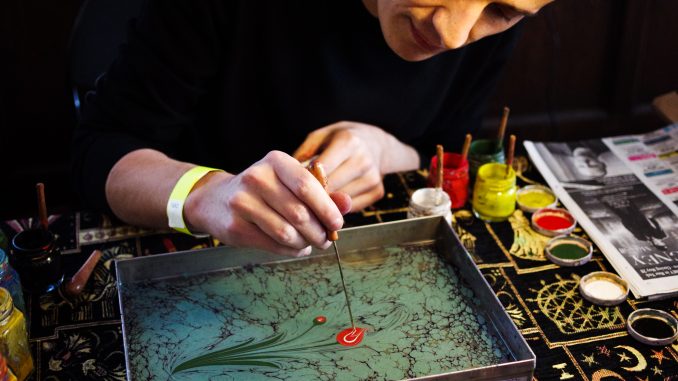
When Iman Soliman met a refugee family for the first time, her mother invited the family to their house for a holiday dinner.
The family experienced one of the bombings in Syria. A piece of shrapnel flew into the father’s eyes and left him blind. He is now raising four children in Philadelphia, and none of them speak English.
Soliman’s mother works with the PA Refugee Task Force — an organization that helps refugees in Pennsylvania with resettlement.
“There are some cases of families who live in roach-infested apartments and people try to come in and help improve the conditions,” said Soliman, a sophomore neuroscience major. “There are tutoring and English classes, and my mom goes to their houses and helps them learn how to use the washing machines.”
That family is just one of 40 Syrian refugee families who have recently come to Philadelphia, said Soliman, the events coordinator of United Muslim Relief at Temple — a chapter of a nonprofit organization that works to alleviate poverty, with a focus on Muslim populations, throughout the world.
On Sunday, Soliman, along with Hira Majid, the president of Temple United Muslim Relief, organized the event “Home Is Where The Refugees Are // With Love, Syria” in Mitten Hall with the goal of making Philadelphia’s refugees feel more comfortable.
All the money raised by selling tickets and artwork for the sold-out event were donated to Syrian refugee families in Philadelphia.
The event was co-hosted by the Temple Arab Student Society. This collaboration gave the audience a broader perspective of Syria because UMR focuses on humanitarian issues while TASS is a cultural organization, Majid said.
When President Donald Trump’s instituted his travel ban, which includes banning refugees for 120 days, said Majid, a senior biomedical engineering major.
Majid said she wanted to raise awareness about the Syrian civil war and help families in need.
“It’s not like they don’t belong here,” Majid said.
The event was organized as a black tie banquet, where attendees could try Middle Eastern cuisine like kofta, a meatloaf dish, and hummus. They also listened to musician Hadi Eldebek play on the oud, a string instrument similar to a lute or mandolin that is played in several Middle Eastern countries.
Jeremy McLellan, a comedian from South Carolina, was the keynote speaker. His comedy is popular in Muslim communities because of his focus on liberal ideas geared toward immigration, race, religion and Islamophobia, according to a VICE article.
The organizations also hosted a silent art auction where attendees could buy art pieces made by student artists like Tanya Patra, a senior advertising major, and Yusra Nahri, a senior biology major.
There was an Arab-themed photo booth with choices of colorful Arab dresses, teapots and cups. Attendees also had the chance to get henna art — a temporary dye that tattoos the body, which has roots in the Arabian Peninsula — and ebru, the art of paper marbling, or painting with water and floated color, from Turkey.
At the event, Joseph Assali, a junior biology major, spoke about his relatives’ experience after being deported back to Syria from the Philadelphia International Airport on Jan. 28.
Six members of his family, including his aunts, uncles and their children, have been seeking entry to the United States since 2003. They were granted visas for the first time last year, but when the family arrived to the U.S., they were detained and questioned individually. Members of the Assali family were forced to leave the next day and were not permitted to contact anyone until they were already on the plane.
“When I found out that they were already on the flight back, I was devastated,” Assali said. “I felt completely powerless because we couldn’t stop them from being sent back to the war zone.”
More than one week after being sent back to Syria, the family was able to come back to the U.S. after a Seattle federal judge blocked President Trump’s executive order.
“It’s all too easy to take for granted the comforts of life,” he added. “We can attend class and get [an] education, while parents in Syria are fearful of sending their children to school, uncertain of when the next bomb will be waiting for them.”
Ammar Alattar, the Arab Student Society’s vice president, said all Arab countries are “one country, one family” and they need to help one another.
“Our families in Syria are suffering,” said Alattar, a junior chemistry major. “Those families, who got the chance to leave for the United States, have nothing. They do hard work and try to get a better life. It’s our duty to help them.”
Quang Do can be reached at quang.duc.do@temple.edu.











Be the first to comment